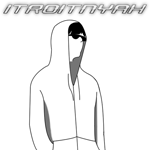"Expression vs. Correction"
32 posts
• Page 1 of 2 • 1, 2
"Expression vs. Correction"
Alright, so I've been really thinking about this lately...
Music is an art. That much is certain. An art that has evolved over hundreds, perhaps really thousands of years. One that has developed theories, rules, and principles in all branches of music. Artists that have come from every inch of the world, incorporating every style believable, plus some.
But what's more important? The theories of the art or the expression of the individual?
It has always seemed like a constant battle between these two ideals, I believe. There's always one side that believes music should be done in a certain way to be "correct," and the other that feels the need to break boundaries to be expressive of themselves. I try to think of what's the balance between the two, and what's more important in the first place.
What do you guys think?
Music is an art. That much is certain. An art that has evolved over hundreds, perhaps really thousands of years. One that has developed theories, rules, and principles in all branches of music. Artists that have come from every inch of the world, incorporating every style believable, plus some.
But what's more important? The theories of the art or the expression of the individual?
It has always seemed like a constant battle between these two ideals, I believe. There's always one side that believes music should be done in a certain way to be "correct," and the other that feels the need to break boundaries to be expressive of themselves. I try to think of what's the balance between the two, and what's more important in the first place.
What do you guys think?
DAW: FL Studio 10, Ableton Live 8
Main VSTs: Harmor, Toxic Biohazard, FM8, Sylenth1, Nexus, Sytrus.
Main genres: Trance, Electro
https://soundcloud.com/choonsofficial/the-prodigy-voodoo-people
Main VSTs: Harmor, Toxic Biohazard, FM8, Sylenth1, Nexus, Sytrus.
Main genres: Trance, Electro
https://soundcloud.com/choonsofficial/the-prodigy-voodoo-people
-

Symphon - Posts: 421
- Joined: 21 Mar 2012 19:08
- OS: Windows 7 Ultimate
- Primary: FL Studio 11
- Cutie Mark: Trance
Re: "Expression vs. Correction"
Expression of the individual or even better expression of the sociopolitical environment that shapes the individual's psyche.
Theories are for the bourgeoisie, a creation to keep the common man from taking his talents and better himself without there help. (I think I mixed up and misrepresented a bunch of political and philosophical theories in my pseudo-tehcnobable, so I apologize in advance )
Theories are for the bourgeoisie, a creation to keep the common man from taking his talents and better himself without there help. (I think I mixed up and misrepresented a bunch of political and philosophical theories in my pseudo-tehcnobable, so I apologize in advance )
"Wherever we are, what we hear is mostly noise. When we ignore it, it disturbs us. When we listen to it, we find it fascinating." - John Cage
Trolls and makers of bad music, thats us!
http://soundcloud.com/ghelded-kultz/tracks
Trolls and makers of bad music, thats us!
http://soundcloud.com/ghelded-kultz/tracks
-

ghelded_kultz - Posts: 426
- Joined: 03 Aug 2012 08:36
- Location: Stallion Dimas
Re: "Expression vs. Correction"
ghelded_kultz wrote:Expression of the individual or even better expression of the sociopolitical environment that shapes the individual's psyche.
Theories are for the bourgeoisie, a creation to keep the common man from taking his talents and better himself without there help. (I think I mixed up and misrepresented a bunch of political and philosophical theories in my pseudo-tehcnobable, so I apologize in advance )
I think I'm in love with your vocabulary.
DAW: FL Studio 10, Ableton Live 8
Main VSTs: Harmor, Toxic Biohazard, FM8, Sylenth1, Nexus, Sytrus.
Main genres: Trance, Electro
https://soundcloud.com/choonsofficial/the-prodigy-voodoo-people
Main VSTs: Harmor, Toxic Biohazard, FM8, Sylenth1, Nexus, Sytrus.
Main genres: Trance, Electro
https://soundcloud.com/choonsofficial/the-prodigy-voodoo-people
-

Symphon - Posts: 421
- Joined: 21 Mar 2012 19:08
- OS: Windows 7 Ultimate
- Primary: FL Studio 11
- Cutie Mark: Trance
Re: "Expression vs. Correction"
The people who "believe music should be done in a certain way to be 'correct'" are record companies who know what the mass audience will listen to and require that music be made following a certain guide to ensure that it's purchased by the mainstream audience. It's the big record companies that control what they listen to, and when they find the perfect song style to earn them big money, that's the "correct" way to make music, if you want to get anywhere. Music should be an expression of who you are, not what society wants you to be. There are no rules for "how you have to make music" or such. Which is why some of the really famous people, like Justin Beiber, Nicki Minaj, etc, used to be actually pretty good at music until they got signed. Now they make cans of "what the audience wants" because it makes the record companies money, and they're just figure heads since the record company can't exactly say "give us money!" and get money. It's also why people who start making music because they want to get rich are bound to fail until they decide that they want to make music for other reasons. The reason why a certain person makes music and whether or not it's for the right reason or not is very controversial. The "right" reason for making music is because you like to make music, meet challenges head on, and express yourself and who you are. I personally make music because I love the feeling of making something that I can be proud of, and I love to entertain people more than anything else. But in those reasons, I also like to make music, and I love the feeling of beating a challenge. It also allows me to express who I am, in a way, since I can't really do that in today's society. So music should definitely be made as an expression of the individual.
-

itroitnyah - Posts: 2482
- Joined: 02 Mar 2012 20:27
- OS: Windows 7
- Primary: FL Studio 11
- Cutie Mark: Blank flank
Re: "Expression vs. Correction"
TunerSymphon wrote:ghelded_kultz wrote:Expression of the individual or even better expression of the sociopolitical environment that shapes the individual's psyche.
Theories are for the bourgeoisie, a creation to keep the common man from taking his talents and better himself without there help. (I think I mixed up and misrepresented a bunch of political and philosophical theories in my pseudo-tehcnobable, so I apologize in advance )
I think I'm in love with your vocabulary.
Speaking sort of intelligent sounding nonsense is what I do best.
"Wherever we are, what we hear is mostly noise. When we ignore it, it disturbs us. When we listen to it, we find it fascinating." - John Cage
Trolls and makers of bad music, thats us!
http://soundcloud.com/ghelded-kultz/tracks
Trolls and makers of bad music, thats us!
http://soundcloud.com/ghelded-kultz/tracks
-

ghelded_kultz - Posts: 426
- Joined: 03 Aug 2012 08:36
- Location: Stallion Dimas
Re: "Expression vs. Correction"
Music theory and expression go hand-in-hand. They aren't tugging against each other. Proper music theory (or at least knowledge about what in the world you're doing) helps express what the artist needs to get across. Not saying that you should toss your art into a cut-and-paste mold.
The big point is that learning from others puts you ahead because you don't have to go through and make all the same mistakes, in essence re-invent the wheel. A friend of mine learned in 4 months under professionals what took me 12 on my own.
The big point is that learning from others puts you ahead because you don't have to go through and make all the same mistakes, in essence re-invent the wheel. A friend of mine learned in 4 months under professionals what took me 12 on my own.

-

Captain Ironhelm - Posts: 661
- Joined: 22 Apr 2012 22:09
Re: "Expression vs. Correction"
Music is whatever you want it to be. Music theory is just something that makes composition a lot easier. It's like learning how to sketch things before you learn to paint.
The rules have always been there and have always been broken. Those who break the rules are usually the ones who rise to the top. Like Beethoven. And Elvis Presley.
The rules have always been there and have always been broken. Those who break the rules are usually the ones who rise to the top. Like Beethoven. And Elvis Presley.
- topitmunkeydog
- Posts: 621
- Joined: 02 Jan 2013 13:43
- Location: the people's republic of freak
- OS: macaroni
- Primary: (trying to learn) ableton
- Cutie Mark: yes
Re: "Expression vs. Correction"
I think that expression and correction go hand in hand. You should write your music in such a way (correction) that the full mood and mental image you wish to bring out in your music can be fully evoked (expression). A full level of realization will allow you to evoke any mood, at any time, in any genre and medium, without any level of awkwardness. It's knowing about, being able to use and actually using any technique in the box - crazy transitions, modulations, harmonizations, counterpoint, whatever.
The more things you know how to do and the more things you DO do the more effective you are as a musician. Meaning you both need to practice and be willing to learn about and do and master crazy new things that move music around in entirely different directions.
Boundaries are absolutely the last thing music theory should make you think it imposes - rather it gives you IDEAS for how to do things optimally (and the best thing about rules? Just like in art, rules are there to be understood, fully comprehended as to why they're there - then summarily broken when you know you can)
This post is a mess but whatever, this is what I think~
The more things you know how to do and the more things you DO do the more effective you are as a musician. Meaning you both need to practice and be willing to learn about and do and master crazy new things that move music around in entirely different directions.
Boundaries are absolutely the last thing music theory should make you think it imposes - rather it gives you IDEAS for how to do things optimally (and the best thing about rules? Just like in art, rules are there to be understood, fully comprehended as to why they're there - then summarily broken when you know you can)
This post is a mess but whatever, this is what I think~
Fami- http://www.soundcloud.com/patashu -Tracker
beep boop bloooppbrrrrr 8-bit music
DAWs, VSTs: I use square waves, does that count?
https://soundcloud.com/patashu/8bit-progressive-metal-fading-world
beep boop bloooppbrrrrr 8-bit music
DAWs, VSTs: I use square waves, does that count?
https://soundcloud.com/patashu/8bit-progressive-metal-fading-world
-

Patashu - Posts: 36
- Joined: 13 Dec 2012 03:44
- Location: Sydney, Australia
Re: "Expression vs. Correction"
There comes a point where "breaking the barriers of music" just sounds like utter shit:
My point is, I think it shows even more creativity and expression if you can make a song within those barriers that still sounds original, good and interesting - making a work of art with "limitations," if you will (Quotes because they're important rules). A true musician can express themselves in the boundries of... well, music. That's why they're called musicians.
My point is, I think it shows even more creativity and expression if you can make a song within those barriers that still sounds original, good and interesting - making a work of art with "limitations," if you will (Quotes because they're important rules). A true musician can express themselves in the boundries of... well, music. That's why they're called musicians.

-

CaptainFluffatun - Posts: 956
- Joined: 18 Nov 2011 23:48
- Location: Washington
- OS: Windows 7
- Primary: Cubase 5
- Cutie Mark: Orchestral
Re: "Expression vs. Correction"
The thing about music is that it can be represented in scientific terms - frequencies, levels, textures, instruments, and so on. Theory is there to explain why certain combinations of these components tend to please us as human beings. Similarly, you have rules for grammar in writing, theories on color in visual art, filmmaking techniques, and so forth.
However, especially in writing, it's fairly common knowledge that a master of the craft can break the rules they spent years learning if they do it well - while this may seem counterintuitive, I have a fairly simple theory (haha) as to why this is acceptable:
You have to learn a rule in order to break it well.
This is where expression comes to the forefront, but as can be said for choosing to express oneself through any form of art in general, the expression is channeled through a certain medium. Thus, rules (and breaking rules) are another medium for expression; it lets you intentionally set a tone and then break it for a specific purpose. In this way, art becomes less of a pure right-brain activity - it requires planning and forethought (or, in the case that inspiration strikes quickly, afterthought), correction and refinement, it requires a conscious effort to express what you want to express in a way that makes sense. Nobody's going to care what you have to say if you say it poorly, but if you express something, even if it's an old and tired idea, in a new and profound way, you've created a truly successful piece of art.
So theory is about knowing how to express yourself. It's learning the tools of your craft before trying to make something. It's knowing a language before you go to spend time in a country that speaks it. It's realizing that there are rules everywhere, but that they can be broken smartly.
However, especially in writing, it's fairly common knowledge that a master of the craft can break the rules they spent years learning if they do it well - while this may seem counterintuitive, I have a fairly simple theory (haha) as to why this is acceptable:
You have to learn a rule in order to break it well.
This is where expression comes to the forefront, but as can be said for choosing to express oneself through any form of art in general, the expression is channeled through a certain medium. Thus, rules (and breaking rules) are another medium for expression; it lets you intentionally set a tone and then break it for a specific purpose. In this way, art becomes less of a pure right-brain activity - it requires planning and forethought (or, in the case that inspiration strikes quickly, afterthought), correction and refinement, it requires a conscious effort to express what you want to express in a way that makes sense. Nobody's going to care what you have to say if you say it poorly, but if you express something, even if it's an old and tired idea, in a new and profound way, you've created a truly successful piece of art.
So theory is about knowing how to express yourself. It's learning the tools of your craft before trying to make something. It's knowing a language before you go to spend time in a country that speaks it. It's realizing that there are rules everywhere, but that they can be broken smartly.
-

colortwelve - Posts: 1187
- Joined: 18 Feb 2012 12:55
- Location: Los Angeles, CA
Re: "Expression vs. Correction"
Limitations lead to creativity. Creativity itself is limited by excessive freedom.
-

XXDarkShadow79XX - Posts: 940
- Joined: 13 Mar 2012 04:49
- OS: Windows
- Primary: FL
Re: "Expression vs. Correction"
Expression through music is pretty difficult if you don't know the particulars of the process. I know some basic music theory, you know, melody structuring, chords, learning scales at some point. Pretty much every musician should learn stuff about it at some point. I'm trying to move onto more melodic EDM nowadays, noisy inharmonic stuff can be fun, but melodic stuff is just more rewarding to make in the end.
Basically, being able to put together a track is nice, being able to put together a track and have the knowledge that you're doing it properly (or at least in a direction related to properly...-ness) is even nicer.
Basically, being able to put together a track is nice, being able to put together a track and have the knowledge that you're doing it properly (or at least in a direction related to properly...-ness) is even nicer.
-

Mr. Bigglesworth - Posts: 1869
- Joined: 19 Apr 2012 03:17
- Location: Toowoomba, Australia
- OS: Windows 7
- Primary: FL Studio
- Cutie Mark: My own ass
Re: "Expression vs. Correction"
Ah. Most people here have mentioned music theory. You say it may restrict you, or guide you.
Hehehehe. Ha. It does neither. These boundaries are what you make them.
I am almost completely sure that everybody here is referring to western music theory, i.e., nothing really ethnic or beyond the norms of today. With its narrow viewpoint, this creates the problem of defining "right" in music. Sure, in western theory, simple progressions, scales, time signatures, and the like, are considered right. But listen to music of other countries, time periods, and cultures, and you will realize that all of these so called "rules" in theory have been "broken". In some music, there is no time signature, no key signature, no concept of rhythm, and much more liberated pitch marking. And it would be interpreted as absolutely correct.
But this is only because there never were any rules to begin with. All of your thoughts about "theory" are actually incredulously restricted. The mainstream today only seeks a primitive, familiar sound, and western theory guides this. Actual WORLD music, and its own true music theory, 99% of which the mainstream ignores, does not. It has no rules, and demonstrates that expression is and has been the only thing that has ever existed in music.
Expand your tastes. Deviate from the mainstream, for it is blind to the music out of their grasp. In music, the only "correction" is the one you perceive. So stop caring about what everybody else thinks. They're blind sheep, walking the only path they can see. There is no right nor wrong; everybody who criticizes based on their narrow view of music is wrong, lesser, and deafened to the true definition of music, and you should not care for their biased opinion. In conclusion, write anything that pleases you.
Tl;dr (I believe it is said), everything you think you know about music, about what you think it means for it to "sound good", how you think it restricts you, and how you think music should be organized, is WRONG. So liberate yourself.
BE ORIGINAL.
Hehehehe. Ha. It does neither. These boundaries are what you make them.
I am almost completely sure that everybody here is referring to western music theory, i.e., nothing really ethnic or beyond the norms of today. With its narrow viewpoint, this creates the problem of defining "right" in music. Sure, in western theory, simple progressions, scales, time signatures, and the like, are considered right. But listen to music of other countries, time periods, and cultures, and you will realize that all of these so called "rules" in theory have been "broken". In some music, there is no time signature, no key signature, no concept of rhythm, and much more liberated pitch marking. And it would be interpreted as absolutely correct.
But this is only because there never were any rules to begin with. All of your thoughts about "theory" are actually incredulously restricted. The mainstream today only seeks a primitive, familiar sound, and western theory guides this. Actual WORLD music, and its own true music theory, 99% of which the mainstream ignores, does not. It has no rules, and demonstrates that expression is and has been the only thing that has ever existed in music.
Expand your tastes. Deviate from the mainstream, for it is blind to the music out of their grasp. In music, the only "correction" is the one you perceive. So stop caring about what everybody else thinks. They're blind sheep, walking the only path they can see. There is no right nor wrong; everybody who criticizes based on their narrow view of music is wrong, lesser, and deafened to the true definition of music, and you should not care for their biased opinion. In conclusion, write anything that pleases you.
Tl;dr (I believe it is said), everything you think you know about music, about what you think it means for it to "sound good", how you think it restricts you, and how you think music should be organized, is WRONG. So liberate yourself.
BE ORIGINAL.
I'm always half-asleep, and I hate dubstep.
Also, you know that other, way more awesome Nomnom guy who shows up on EQD sometimes? THAT PERSON IS NOT ME.
We just happen to have similar pseudonyms.
Also, you know that other, way more awesome Nomnom guy who shows up on EQD sometimes? THAT PERSON IS NOT ME.
We just happen to have similar pseudonyms.
-

Omnomnomnom - Posts: 74
- Joined: 22 Feb 2012 15:59
Re: "Expression vs. Correction"
Omnom... Holy hell... This post is a bit inspiring, at the very least, and I will definitely start broadening my views, to be completely honest.
DAW: FL Studio 10, Ableton Live 8
Main VSTs: Harmor, Toxic Biohazard, FM8, Sylenth1, Nexus, Sytrus.
Main genres: Trance, Electro
https://soundcloud.com/choonsofficial/the-prodigy-voodoo-people
Main VSTs: Harmor, Toxic Biohazard, FM8, Sylenth1, Nexus, Sytrus.
Main genres: Trance, Electro
https://soundcloud.com/choonsofficial/the-prodigy-voodoo-people
-

Symphon - Posts: 421
- Joined: 21 Mar 2012 19:08
- OS: Windows 7 Ultimate
- Primary: FL Studio 11
- Cutie Mark: Trance
Re: "Expression vs. Correction"
So stop caring about what everybody else thinks. They're blind sheep, walking the only path they can see.
Because, you know, everyone is just here to get attention.
In conclusion, write anything that pleases you
Erm...that's what I already do.
Also, yes, there indeed is right and wrong in music. Hitting every single key at once on a piano for example, will cause pretty much any school of musical thought to cringe.
And arguing Mainstream? For one, western music theory isn't restricted to mainstream music. And the reason western music theory exists is simply because it works. That's it, it's not a tool for pleasing the masses, you can do that by just pandering to what people want.
I'm not saying your argument is invalid or anything of the like, I just don't particularly agree with you.
-

Mr. Bigglesworth - Posts: 1869
- Joined: 19 Apr 2012 03:17
- Location: Toowoomba, Australia
- OS: Windows 7
- Primary: FL Studio
- Cutie Mark: My own ass
Re: "Expression vs. Correction"
Western music theory is the most common because it's been the current thing the longest, I guess. Like when classical music started being made that is what was used, rather than anonymous folk tunes before.
About the hitting every single key on the piano, I beg to differ. http://www.youtube.com/watch?v=NzGgX1Di ... ure=relmfu
But seriously, nowadays contemporary classical composers break the rules to such an extent that most people hate it! Because, if they do not do this, they aren't considered to be academic composers. I really don't want to get into an argument about what makes classical music because I still don't really know, but check out some stuff byLigeti, Jodlowski, and Penderecki to see what I mean, kinda. These composers are really highly regarded but their work is the musical equivalent of hanging up a blank canvas in an art museum. Speaking of which, 4:33 by John Cage is prolly the best example of something that challenges the definition of music and what is right or wrong in it.
About the hitting every single key on the piano, I beg to differ. http://www.youtube.com/watch?v=NzGgX1Di ... ure=relmfu
But seriously, nowadays contemporary classical composers break the rules to such an extent that most people hate it! Because, if they do not do this, they aren't considered to be academic composers. I really don't want to get into an argument about what makes classical music because I still don't really know, but check out some stuff byLigeti, Jodlowski, and Penderecki to see what I mean, kinda. These composers are really highly regarded but their work is the musical equivalent of hanging up a blank canvas in an art museum. Speaking of which, 4:33 by John Cage is prolly the best example of something that challenges the definition of music and what is right or wrong in it.
- topitmunkeydog
- Posts: 621
- Joined: 02 Jan 2013 13:43
- Location: the people's republic of freak
- OS: macaroni
- Primary: (trying to learn) ableton
- Cutie Mark: yes
Re: "Expression vs. Correction"
About the hitting every single key on the piano, I beg to differ. http://www.youtube.com/watch?v=NzGgX1Di ... ure=relmfu
erm...
Mr. Bigglesworth wrote:Also, yes, there indeed is right and wrong in music. Hitting every single key at once on a piano for example, will cause pretty much any school of musical thought to cringe.
-

Mr. Bigglesworth - Posts: 1869
- Joined: 19 Apr 2012 03:17
- Location: Toowoomba, Australia
- OS: Windows 7
- Primary: FL Studio
- Cutie Mark: My own ass
Re: "Expression vs. Correction"
Speaking of which, 4:33 by John Cage is prolly the best example of something that challenges the definition of music and what is right or wrong in it.
Also, is it weird that I just imagined replacing orchestral scores in movies with people shuffling about and coughing?
-

Mr. Bigglesworth - Posts: 1869
- Joined: 19 Apr 2012 03:17
- Location: Toowoomba, Australia
- OS: Windows 7
- Primary: FL Studio
- Cutie Mark: My own ass
Re: "Expression vs. Correction"
topitmunkeydog wrote:nowadays contemporary classical composers break the rules to such an extent that most people hate it!
And now we come to the point of the discussion in which we start discussing what counts as art, why it does, and so forth. It comes down to personal belief, and mine is that Western music theory is used because it works, and while my previously mentioned statement about knowing the rules to break them stands, the point is that you're working more with the rules than against them.
Just like submitting a urinal to an art gallery as a piece for exhibition, and just like writing 'music' in which nobody plays anything for four and a half minutes, some 'art' is more of an expression that the rules can get boring when you've worked within them for your entire career (for most of these types, that means their entire lives), but it loses its profundity when you end up creating something that sounds like it was made in five minutes by a first-timer. It essentially doubles back on itself and loses its meaning, because it's saying what it has to say in a way that's nigh incomprehensible.
Let me return to my brief metaphor of language. As can be observed when comparing, say, the work of Shakespeare to a more modern writer such as Kurt Vonnegut, there's a noticeable discrepancy in the way they say things. When people know the language well enough, they go further, they incorporate informal elements like slang, they write in forms not essential to their medium (compare the archaic tendency towards poetic language with the modern tendency towards stream of consciousness). But the fact is, they're writing in the same language - in this case, English. While the mode of expression has varied among those who have reached the limits of their rulebook and wish to go further, it remains that they worked from the same basis.
Similarly, you may have musicians now breaking the rules of Western theory in different ways than classical composers may have (although we tend to turn their rule-breaking into more theory vocabulary), but they're still working from the same rulebook, and this really should be apparent. When you step completely beyond the bounds of the rules you grew up learning, you're not working in the same medium anymore. You're not making music, you're making noise. You're not writing in English, you're writing Finnegan's Wake.
And really, what's pleasing about shaking yourself free of the boundaries you've always known, other than personal gratification? Art may be about expressing yourself in its purest form, but if the only way you can do that is to break every rule in the book at once, you really need to say something better with your art.
-

colortwelve - Posts: 1187
- Joined: 18 Feb 2012 12:55
- Location: Los Angeles, CA
Re: "Expression vs. Correction"
Mr. Bigglesworth wrote:Also, yes, there indeed is right and wrong in music. Hitting every single key at once on a piano for example, will cause pretty much any school of musical thought to cringe.
And arguing Mainstream? For one, western music theory isn't restricted to mainstream music. And the reason western music theory exists is simply because it works. That's it, it's not a tool for pleasing the masses, you can do that by just pandering to what people want.
I remain adamant about my statements on the lack of right and wrong in music. Why? Because, for example, as you said, hitting all 12 semitones (piano, stretch tuned), will indeed induce a cringing feeling. That is simply how the human ear evolved.
However, does the cringe make the music bad? Or wrong? No and no. As the topic is how it is, I remind you that the induction of cringing, as a form of musical expression, may actually be desired, if the writer so chooses. Many good composers will deliberately employ dissonance to express something (dissonance likely expresses pain, suffering, rage, etc.). All combinations of sound will express something. And if the end product expresses what the writer wants, then it is correct when the writer sees it to be so. It cannot be called incorrect, for all definitions of "incorrect" in music are opinions of those other than the composer, at that point. I know that humans have a tendency to gravitate towards certain musical themes, and that some things may sound more pleasing, but just because it doesn't fit in one of those themes, doesn't mean it can be called "wrong". It still fits the definition of music, and it is good enough when the composer thinks it so. Try listening to something REALLY avant-garde, and you'll see, or rather, hear, what I mean. They didn't write that music for no reason; they purposefully wanted to present a musical idea, and it can still sound good in the meantime.
And I'm not saying that western theory is all mainstream- far from it. But MOST of it is (nowadays), that much must be true.
And I'm not saying that western theory shouldn't exist, nor that it is bad. I know it isn't a tool for pleasing the masses. However, you must know that it is often employed like one, in this point in time. Still, if you write in western theory, and are pleased with it, then it is fine. Personal expression is the only thing that matters in music.
But know this: while acknowledgement of western theory is good, the acknowledgement of ALL theory is far better. You have a world of expression and emotion (or a lack of emotion) to dole out.
And if your writing expression wants to go outside the realm of western theory (if you start in it), then, as my point is, do not think of western theory as the only correct answer, do not let it restrict you, and always let your music roam beyond the normal borders when it seeks to do so.
Also, to C12: You assume that all non-western music sounds bad or is incomprehensible. All your points assume that if you break free from these boundaries, everything will sound like rubbish.
THAT IS ANYTHING BUT THE CASE. To point out problems in your metaphorical thought: you can just as easily write in any other language other than English, and remain equally, if not more, pleasant sounding and expressive. Languages like French or Chinese or Russian. Why? Because there are languages other than English that still sound good, and being multilingual is always better than only knowing 1 or a few languages. Similarly, breaking free from western theory doesn't mean instantly shitty music, because there ACTUALLY ARE other music theories around the world that work just as well, and when used in conjunction, work even better.
Also, it seems as though you think all avant-gardes have western theory roots, then break from it to become what they are. Wrong. There are many great musicians (oftentimes unknown) who start in an ethnic music theory, migrate to another theory form, or learn multiple musical forms at once. Many world musicians have stuck with their native ethnic musics, and they can sound MAGNIFICENT.
Last edited by Omnomnomnom on 09 Jan 2013 21:43, edited 1 time in total.
I'm always half-asleep, and I hate dubstep.
Also, you know that other, way more awesome Nomnom guy who shows up on EQD sometimes? THAT PERSON IS NOT ME.
We just happen to have similar pseudonyms.
Also, you know that other, way more awesome Nomnom guy who shows up on EQD sometimes? THAT PERSON IS NOT ME.
We just happen to have similar pseudonyms.
-

Omnomnomnom - Posts: 74
- Joined: 22 Feb 2012 15:59
Re: "Expression vs. Correction"
*sits back and watches* This is like a philosophy war... I'll post my full opinion tomorrow at an actual keyboard.
DAW: FL Studio 10, Ableton Live 8
Main VSTs: Harmor, Toxic Biohazard, FM8, Sylenth1, Nexus, Sytrus.
Main genres: Trance, Electro
https://soundcloud.com/choonsofficial/the-prodigy-voodoo-people
Main VSTs: Harmor, Toxic Biohazard, FM8, Sylenth1, Nexus, Sytrus.
Main genres: Trance, Electro
https://soundcloud.com/choonsofficial/the-prodigy-voodoo-people
-

Symphon - Posts: 421
- Joined: 21 Mar 2012 19:08
- OS: Windows 7 Ultimate
- Primary: FL Studio 11
- Cutie Mark: Trance
Re: "Expression vs. Correction"
Omnomnomnom wrote:Also, to C12: You assume that all non-western music sounds bad or is incomprehensible. All your points assume that if you break free from these boundaries, everything will sound like rubbish.
THAT IS ANYTHING BUT THE CASE. To point out problems in your metaphorical thought: you can just as easily write in any other language other than English, and remain equally, if not more, pleasant sounding and expressive. Why? Because there are languages other than English that still sound good, and being multilingual is always better than only knowing 1 or a few languages. Similarly, breaking free from western theory doesn't mean instantly shitty music, because there ACTUALLY ARE other music theories around the world that work just as well, and when used in conjunction, work even better.
You may be misinterpreting what I'm actually saying. That is:
-Every form of art has a very common set of boundaries that are there because they work.
-When one first learns a form of art, they are taught to work entirely within the set boundaries to demonstrate mastery thereof.
-When one graduates beyond the compulsory restraint of these common boundaries, one may find that incorporating elements from outside renders a more pleasing result.
-This does not mean that they now have free license to completely leave behind the boundaries.
--Working without a set of boundaries is possible no matter what one's original basis may be. One may learn African music theories, or grow up speaking and writing German. The point is not that one must remain faithful to a single set of boundaries, but to the set in which one has been instructed. There is no one absolute scale against which all is set, but the fact remains that there are scales used to measure because they work.
I wish to reiterate this point: I am not saying that Western theory is inherently right and superior to other music theories, nor am I saying that English is inherently right and superior to other languages. The point I wish to make clear is that when one abandons all the trappings of rules - regardless of what those rules may be - their work loses direction and is less intelligible.
So work with whatever theory you want. But do not abandon all theory whatsoever.
-

colortwelve - Posts: 1187
- Joined: 18 Feb 2012 12:55
- Location: Los Angeles, CA
Re: "Expression vs. Correction"
My view on the definition of art is very loose. I believe that art is something that has the intention of being art. If Marcel Dchamp wants a toilet to be art, then it is art. This is why people do have free liscence to leave behind all restrictions-- because art is what they want to make of it. And this can result in an aesthetic digression, or a completely new way of thinking.
I want to thank whoever started this topic. I'm not sure we're still talking about whatever you were asking in the first place, but this is totally awesome.
I want to thank whoever started this topic. I'm not sure we're still talking about whatever you were asking in the first place, but this is totally awesome.
- topitmunkeydog
- Posts: 621
- Joined: 02 Jan 2013 13:43
- Location: the people's republic of freak
- OS: macaroni
- Primary: (trying to learn) ableton
- Cutie Mark: yes
Re: "Expression vs. Correction"
colortwelve wrote:So work with whatever theory you want. But do not abandon all theory whatsoever.
Yes, this I can definitely agree with, as the former part was essentially the point.
And yes, working with personal theories will definitely be easier and more connective to the writer.
It seems that our ideas had crossed at the point where you are mostly stating the benefits to a composer's writing while working in their personal theory/theories, and I was stating the overall benefit of having world theories in themselves (and the freedom of expression and lack of correction thereof).
In any case, I do not disagree with you, I wholeheartedly concur. The only case I had to straighten out was the thought of right and wrong (which does get philosophic, as tunersymphon stated) in music, as well as the thought of the constitutions of expression, with Mr. Bigglesworth.
Last edited by Omnomnomnom on 09 Jan 2013 22:05, edited 1 time in total.
I'm always half-asleep, and I hate dubstep.
Also, you know that other, way more awesome Nomnom guy who shows up on EQD sometimes? THAT PERSON IS NOT ME.
We just happen to have similar pseudonyms.
Also, you know that other, way more awesome Nomnom guy who shows up on EQD sometimes? THAT PERSON IS NOT ME.
We just happen to have similar pseudonyms.
-

Omnomnomnom - Posts: 74
- Joined: 22 Feb 2012 15:59
Re: "Expression vs. Correction"
Omnomnomnom wrote:Ah. Most people here have mentioned music theory. You say it may restrict you, or guide you.
Hehehehe. Ha. It does neither. These boundaries are what you make them.
I am almost completely sure that everybody here is referring to western music theory,
*snip*
I agree fully with the sentiments of this post. However, it's not true to believe there is only one music theory (Western) and everything else is a glorious freeform creativity nirvana with no rules. Every culture with music has rules about how they make that music - otherwise their music would be literally random. When you pick a culture or genre, learn its music and its rules and compose for it, you're replacing one set of expectations with another. Definitely look around to see what kinds of amazing music is out there, but don't think you can escape theory and expectations - embrace it. It can only make you more creative to know the hows and the whys.
Every Friday (US Thursdays) I do one hour compos with a bunch of people over at thasauce. A lot of people there are great, but one, DDRKirby, is especially amazing because he's mastered his DAW and the style he wants to the point where he can crank out 3-4 minutes of original content in the hour. His ability to drill rules and short cuts into muscle memory means he spends less time thinking about the mechanics of composition and gets hugely more efficient time spent on making his audience feel awesome listening to the song. Similarly, knowing very deep in your consciousness rules of good composition mean you get straight from A (having an idea in your head) to B (making everyone else feel the idea) with as few bumps as possible, since you just know how to do things. You can't know without some kind of rule system, whatever it might be.
(Sorry again if this is rambly XD)
EDIT:
Hitting every single key at once on a piano for example, will cause pretty much any school of musical thought to cringe.
I have heard at least one song where this is used to good effect.
Fami- http://www.soundcloud.com/patashu -Tracker
beep boop bloooppbrrrrr 8-bit music
DAWs, VSTs: I use square waves, does that count?
https://soundcloud.com/patashu/8bit-progressive-metal-fading-world
beep boop bloooppbrrrrr 8-bit music
DAWs, VSTs: I use square waves, does that count?
https://soundcloud.com/patashu/8bit-progressive-metal-fading-world
-

Patashu - Posts: 36
- Joined: 13 Dec 2012 03:44
- Location: Sydney, Australia
32 posts
• Page 1 of 2 • 1, 2
Return to Off-Topic Discussion
Who is online
Users browsing this forum: No registered users and 5 guests


